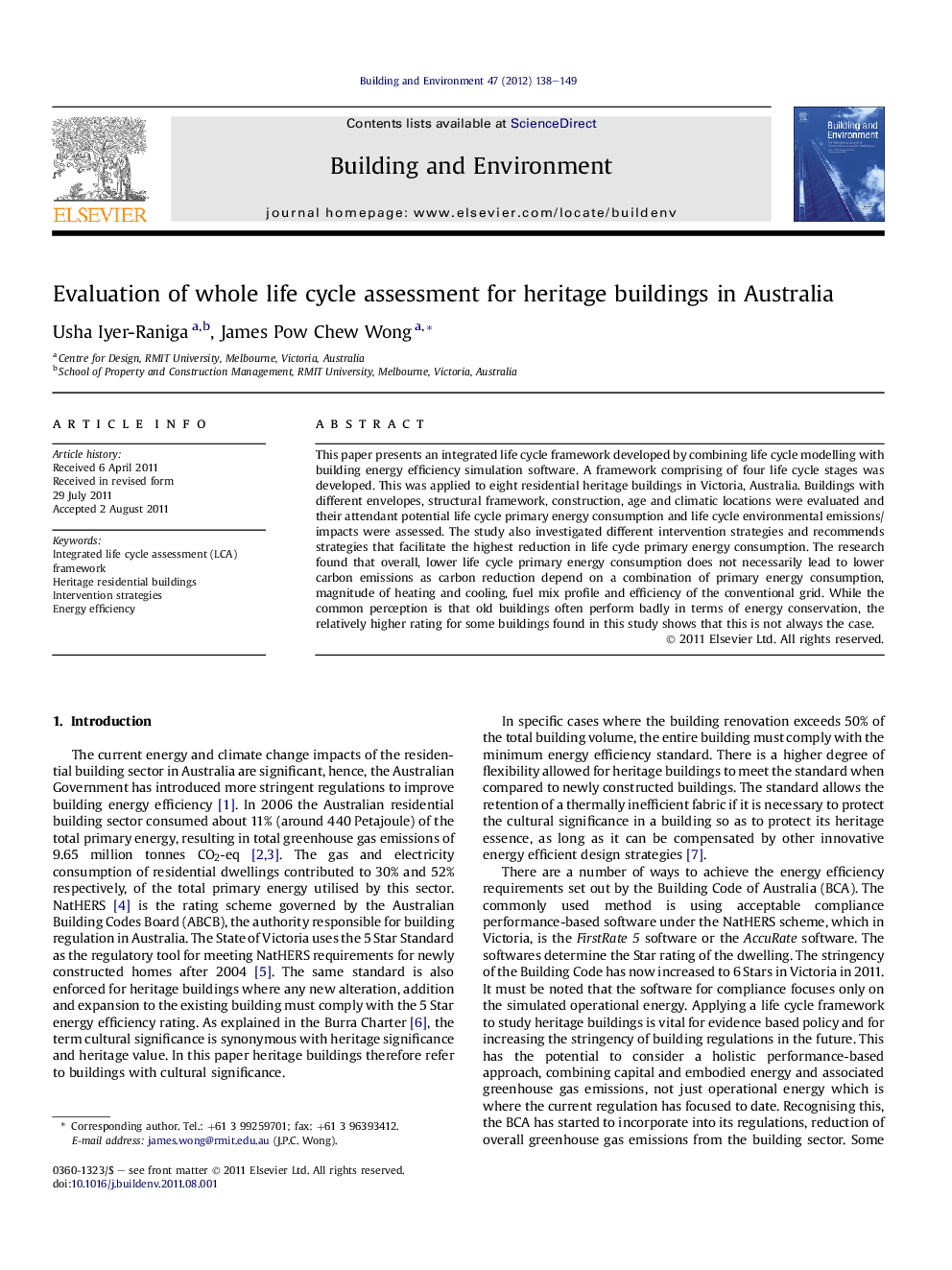| کد مقاله | کد نشریه | سال انتشار | مقاله انگلیسی | نسخه تمام متن |
|---|---|---|---|---|
| 248596 | 502576 | 2012 | 12 صفحه PDF | دانلود رایگان |

This paper presents an integrated life cycle framework developed by combining life cycle modelling with building energy efficiency simulation software. A framework comprising of four life cycle stages was developed. This was applied to eight residential heritage buildings in Victoria, Australia. Buildings with different envelopes, structural framework, construction, age and climatic locations were evaluated and their attendant potential life cycle primary energy consumption and life cycle environmental emissions/impacts were assessed. The study also investigated different intervention strategies and recommends strategies that facilitate the highest reduction in life cycle primary energy consumption. The research found that overall, lower life cycle primary energy consumption does not necessarily lead to lower carbon emissions as carbon reduction depend on a combination of primary energy consumption, magnitude of heating and cooling, fuel mix profile and efficiency of the conventional grid. While the common perception is that old buildings often perform badly in terms of energy conservation, the relatively higher rating for some buildings found in this study shows that this is not always the case.
► We developed an integrated life cycle framework.
► The framework combined life cycle modelling with building energy efficiency simulation software.
► The life cycle primary energy consumption and environmental impacts of eight residential heritage buildings were evaluated.
► Various intervention strategies are applied to the eight case study buildings.
► The research found that lower life cycle primary energy consumption does not necessarily lead to lower carbon emissions.
Journal: Building and Environment - Volume 47, January 2012, Pages 138–149